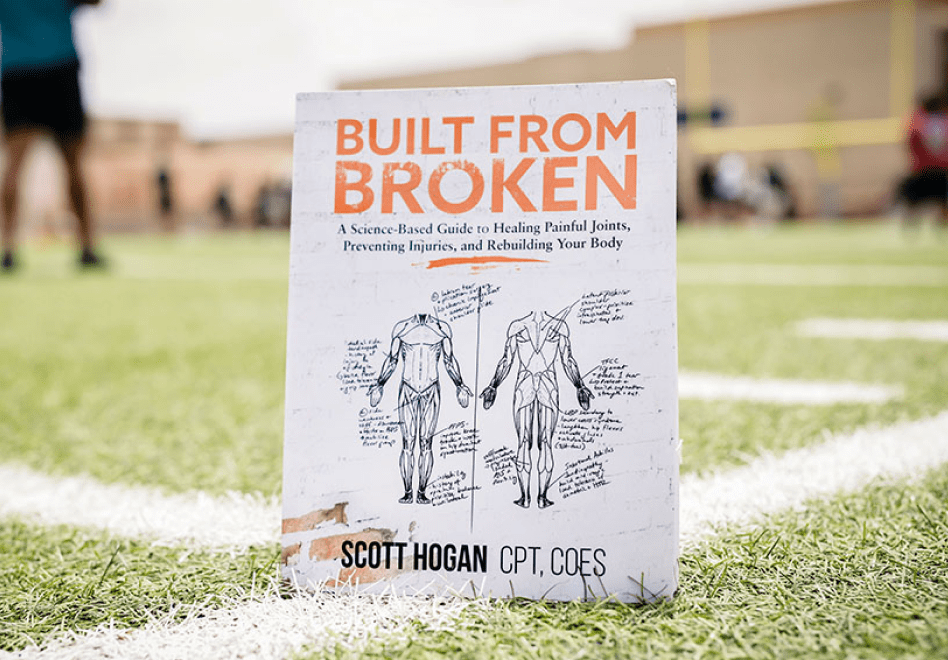
Be built (to last).
The right supplements can help you recover naturally and build a resilient body.

Supplement Quiz
Take this short quiz to discover the perfect supplements for your needs and goals.
About SaltWrap

Built from Broken
Get the best-selling book from SaltWrap founder, Scott Hogan, and start rebuilding today.
Research Update: How Exercise May Really Boost Your Brain
By Joe Zagami
The link between exercise and cognition – how our brains operate – is undeniable.
We’ve all felt it.
Even people who hate working out will have a hard time denying we tend to think more clearly and often have a better feeling of mental well-being after a good workout.
But now, new research may shed light on why exercise – specifically strength training – helps improve cognitive function.1
The New Study
Researchers at the University of Illinois conducted a series of in-vitro (cells in a petri dish) studies to track the effects of exercise on cognition.
Specifically, they looked at changes in neurons in the hippocampus. This part of the brain is widely believed to be the center of emotion, memory, and even the autonomic nervous system.
It also plays a significant role in information consolidation from memories.
So, you could argue that it’s the part of the brain that helps make us, well, us.
They found that when they contracted the muscle cells, the hippocampal cells reacted in a major way. They didn’t just fire off more electrical signals. The cells got bigger.
Researchers also observed that astrocytes – a type of “support cell” – help regulate the growth and activity of brain cells.
In total, the muscle contractions and the chemical signals linked to them helped increase the number of hippocampal brain cells and astrocytes by 1.4 and 4.4-fold, respectively.
To take things a step further, in a separate study, they stopped the muscle cells from contracting.
When they did, they found that the same hippocampal cells didn’t fire as rapidly.
It means that muscle contractions make brain cells release chemical signals that stationary cells don’t.
Above: Brain teasers and puzzles have their place, but if you want to boost your brain, don't neglect exercise.
Putting It All Together
We like this study a lot. And not just because it supports the massive list of benefits associated with exercise.
The researchers made a strong case for the effect of exercise on hippocampal neurons by also looking at what happens to the same cells when muscle contractions are taken out of the picture. (Some would call this "going the extra mile.")
That said, this was an in-vitro study on mice cells.
So, while it’s very encouraging... it’s a bit premature to say the same effects would carry over to human cells – let alone actual humans.
It’s not a slam-dunk in terms of explaining exactly why exercise is good for the brain. But it may certainly help paint a more complete picture in the future.
Keep in mind that stacks of scientific research have previously confirmed that exercise is an important factor in optimal brain health.
Studies have shown that exercise:
Increases blood flow to the brain (more blood means more nutrients and oxygen)2
Reduces inflammation and stress3, 4
And improves sleep.5
Before we wrap this up, a word of caution about these most recent findings.
Some medical experts are already talking about the results of this latest study potentially leading to the development of new treatments for cognitive impairment.
Specifically, the ability to “reverse engineer treatments to replicate pro-cognitive effects of exercise in the absence of physical activity.”
That would be great for people who are physically unable to exercise. We hope it becomes a reality for those people someday.
But for now? Our advice is – if you can – do not wait around for drug companies to sell you exercise in a pill.
Unlike whatever "pharmaceutical innovations" may come down the pipeline, the main side effects of moderate exercise include better bone health and stronger (and bigger) muscles.
Founder: Scott Hogan

I created SaltWrap to bring together the most practical ideas in therapeutic sports nutrition, corrective exercise, and functional fitness — with the goal of keeping you (and myself) strong, mobile, and built to last.
I've worked as an A.C.E. Certified Personal Trainer, Orthopedic Exercise Specialist, and nutritional supplement formulator.
But more importantly — I've spent most of my life battling injuries, joint pain, and just being plain beat up. So I know what it's like to struggle toward fitness goals.
SaltWrap is here to push you through injuries, setbacks and perceived physical limitations. To a place beyond what you think you're capable of. Sign up here to stay in the loop.
Learn more about my best-selling injury prevention and recovery book, Built from Broken.








